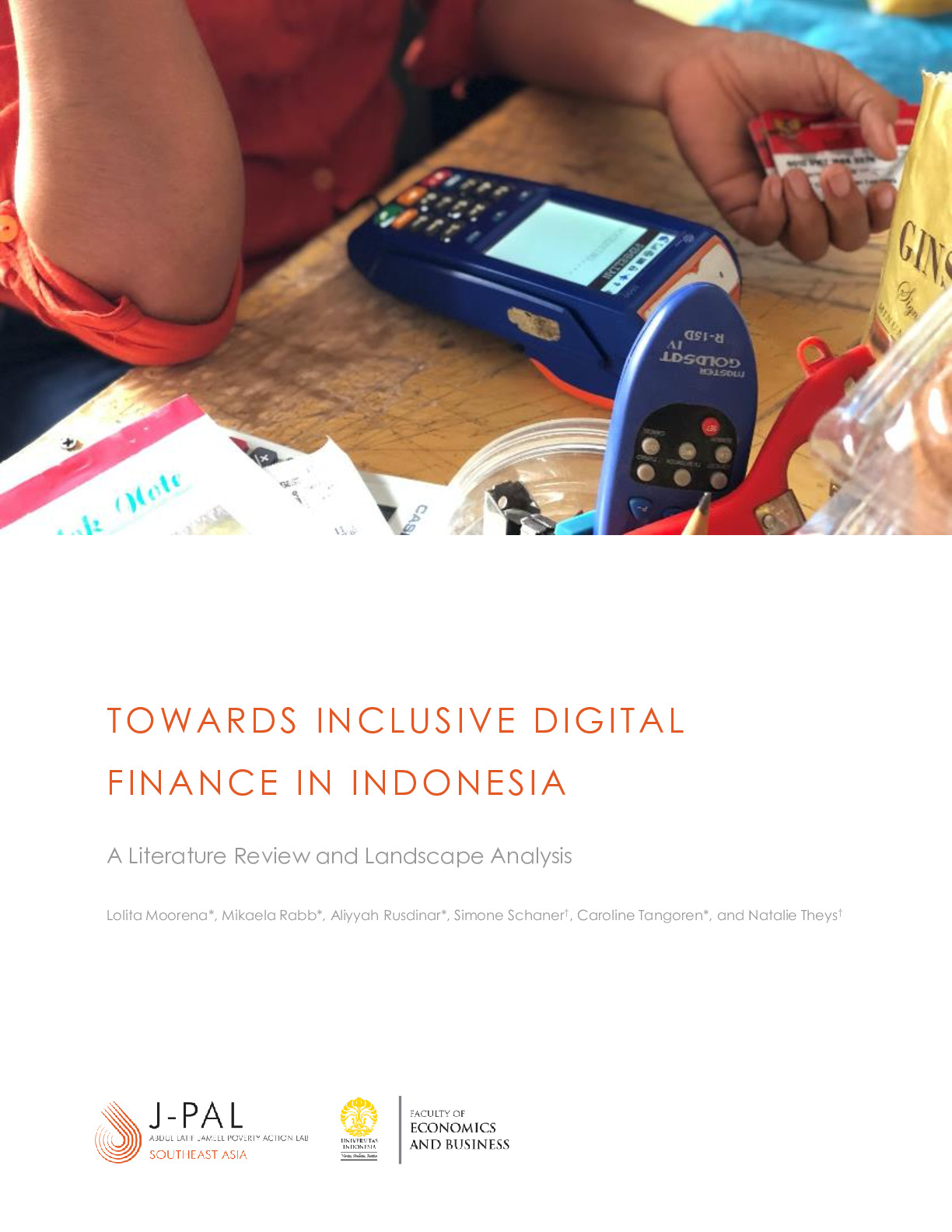Towards Inclusive Digital Finance in Indonesia (Inclusive Financial Innovation Initiative White Paper)
Read the white paper in Indonesian here.
The rapid global spread of mobile phones and internet has been one of the most promising recent developments in financial inclusion, which is beginning to transform the financial services landscape in many low-and-middle income countries (LMICs). Digital financial services (DFS) have played a key role in enabling this transformation. DFS can address market failures by reducing the transaction costs of providing basic banking and money transfer services; generate and use data which can close information gaps; and, enable entirely new models of service delivery.
However, DFS risks exacerbating inequality by disproportionately serving the better off and the better educated if new products do not meet the needs and preferences of low-income users. These concerns are especially relevant in countries like Indonesia, where DFS are being rapidly adopted by individuals at the top of the socioeconomic pyramid. To date, there is relatively little evidence to guide policymakers, organizations, and firms committed to this agenda, despite the clear potential for DFS innovation to advance Indonesia’s financial inclusion goals and support inclusive growth.
The white paper consists of three sections, (1) global literature review which draws primarily from experimental or quasi-experimental literature on our four sectors of electronic money and payment technologies, savings, credit, and e-commerce; (2) overview of the Indonesian institutional, technological, and socioeconomic landscape including policy roadblocks and priorities context, and describing the current condition of financial inclusion in Indonesia and highlighting both gaps and opportunities; (3) identifies promising areas for future policy innovation and future research.
